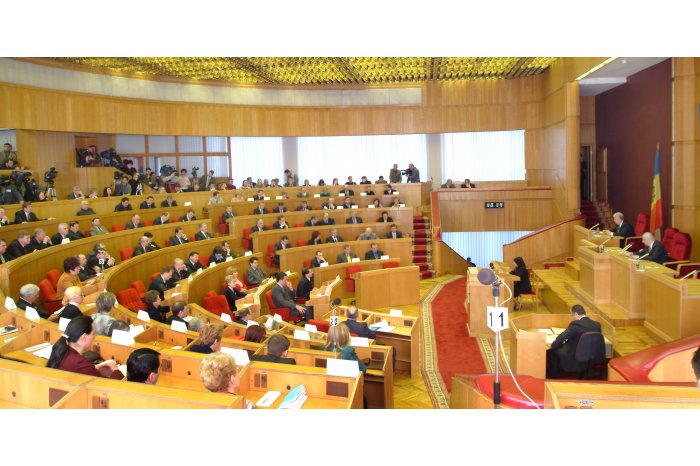24 March 2005 - Moldovan parliament adopts Declaration on European Integration of Moldova
10:12 | 23.03.2021 Category:
Chisinau, 23 March /MOLDPRES/- The adoption of the Declaration on European Integration of the Republic of Moldova, adopted on 24 March 2005 by the Moldovan Parliament was the result of previous actions and compromises that characterized the inconsistency of the political class in Chisinau.
The accession of the Communist Party to power in 2001 led the society to assume that many of the democratic achievements of the 1990s would be revised and the federalization of the Republic of Moldova would take place. All the more so as the Communist Party had a comfortable parliamentary majority in Parliament.
The first actions proved the justice of these concerns. In a hurry, and in an almost secret manner, the Kozak Plan was being prepared, which provided for the formation of an asymmetric federation with three subjects: Moldova, Transnistria and Gagauzia, the official Russian language and a Russian military base for a period of 25 years, Parliament bicameral with a Senate, where Moldova was on a par with the Gagauz-Transnistrian team. Moreover, the Kozak plan also provided for the veto right of federal subjects, ie Tiraspol and Comrat in major domestic and foreign policy issues of the future federal state.
The Communists' pro-European approach was a hostile signal to Moscow, and the Russians relied heavily on Voronin's defeat in the March 2005 parliamentary elections. on the leader of the Moldovan communists and this was also felt when totaling the election results. Unlike the triumphant result of 2001, the Communists won only 56 seats, which was a parliamentary majority but an insufficient number of votes to elect the head of state.
Thus, on 24 March 2005, for the first time, in the Chisinau parliament the Declaration on European Integration of the Republic of Moldova was voted by general consensus. A sober document in which were, in an exact manner, formulated the fundamental principles of the European Union that Moldova assumes.
Previously, the Republic of Moldova adopted the principles of the European Neighborhood Policy.
After many negotiations, compromises and drafts, on March 24, 2005, the draft Declaration on the European Integration of the Republic of Moldova is proposed for the attention of the deputies. The preamble was a very balanced and promising one and created the illusion that the country would step irreversibly on the path of European integration.
24 March 2005 was a time of euphoria for pro-European forces, but what followed brought bitter disappointments.
The following years were marked by contradictory reforms, a quasi-total violation of the principle of separation of powers and the flourishing of corruption. It took a new effort in 2010-2014, which brought us the status of associate member of the EU, but followed the apocalyptic events with the theft of the billion, which almost permanently compromised the European course of the Republic of Moldova.

